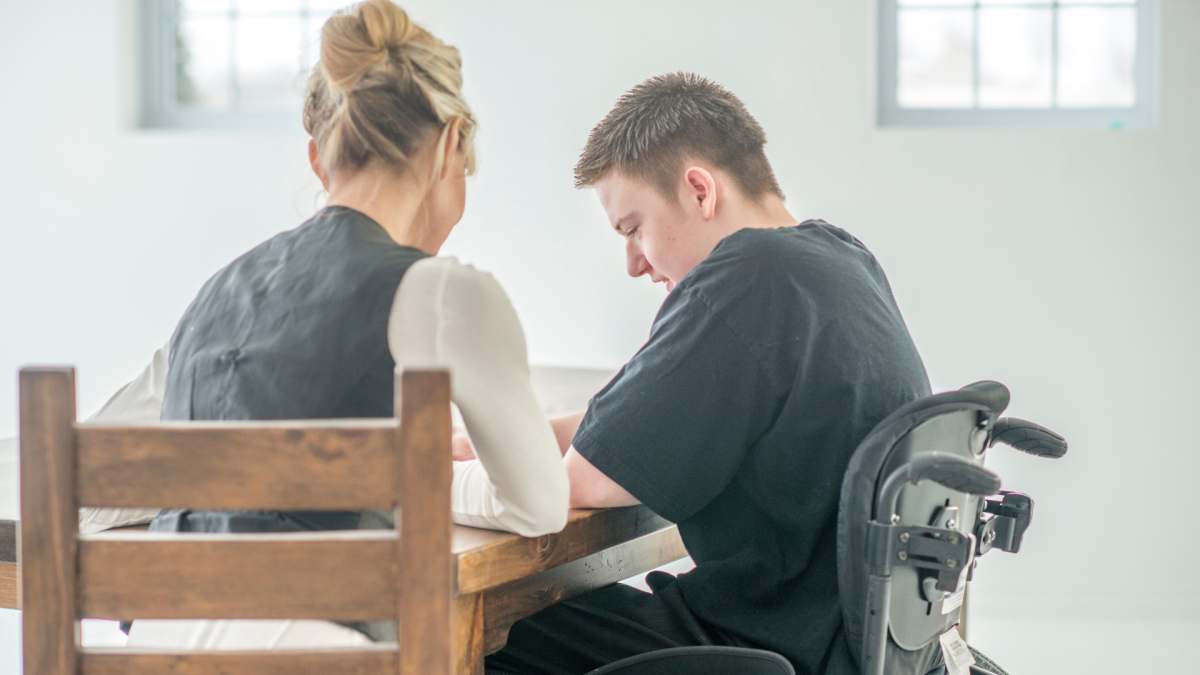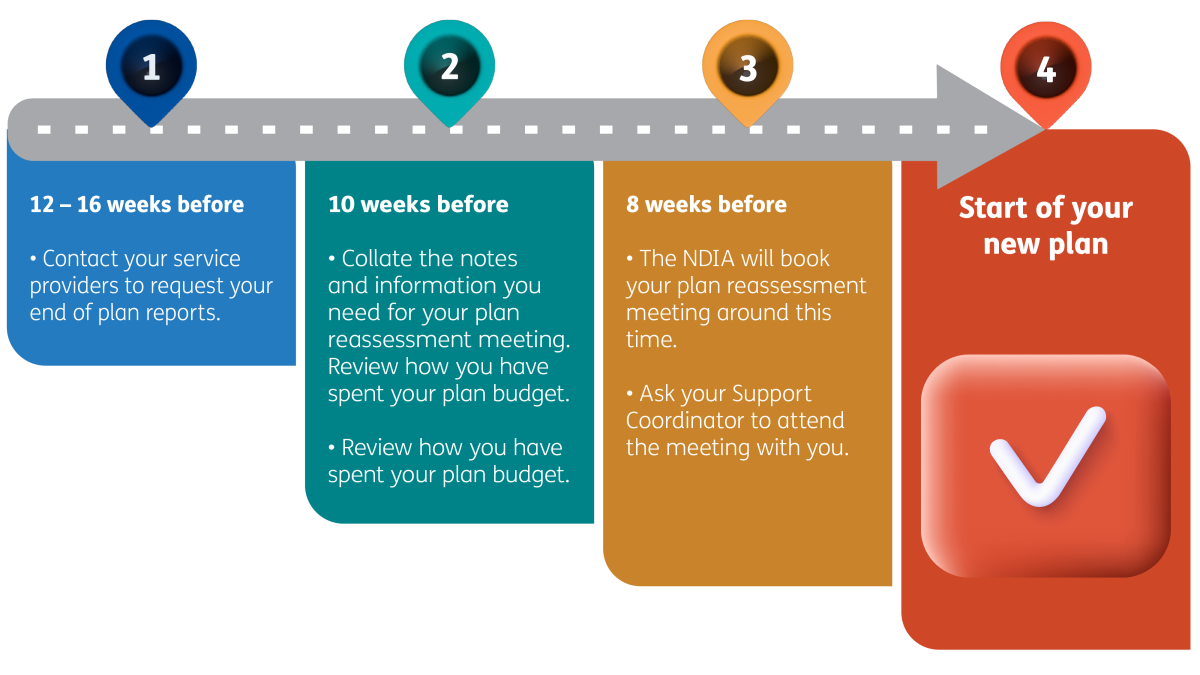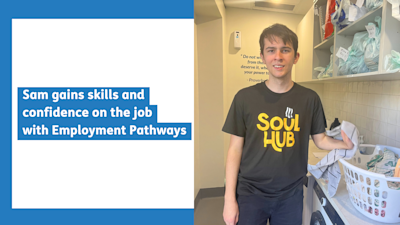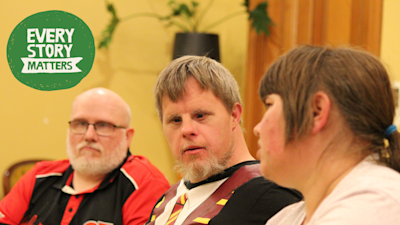For the first edition of our NDIS news series, we share our top tips for preparing for an upcoming plan reassessment.
When your NDIS Plan is due for renewal, the NDIA will arrange for you to have your NDIS plan reassessed. This process, previously referred to as a ‘plan review’, is called a 'Plan Reassessment'.
The NDIS will contact you when it is time to complete your plan reassessment. For some people, this is every 12 months, and in other cases, it may be every two or three years.
Plan reassessments are an important opportunity for you to look at what supports have been working well for you and what you might like to try or change.
Here are our top five tips on preparing for a plan reassessment to put you in the best position for getting the most out of your next plan.
1. Make notes to guide your plan reassessment discussion
Making notes will help you to remember all the information you need when discussing your plan reassessment. We suggest including notes on the following points:
What you liked about your NDIS plan and why
What you didn’t like about your NDIS plan and why
The steps you have taken towards achieving your goals
Any new goals that you have
What you need (your supports) to help you to achieve your goals.
Whether you will need NDIS supports in future
How you want to manage your plan funding
Any other questions you want to ask
If you have one, ask your Support Coordinator to help you prepare these notes – they will have lots of knowledge and expertise on how to best present this information.
The NDIS Participant Booklet 3 also has some great information and a helpful template to support you to prepare points for your plan reassessment meeting.

Image: A woman with pink hair sits in her wheelchair, typing notes on a laptop.
2. Have your end-of-plan progress reports on hand
You will need to provide the NDIA Planner with your end-of-plan progress reports from your provider/s to show how the supports you receive are helping you to achieve your goals. This is the evidence you need to explain why these supports should continue to be funded or why your supports may need to change.
Contact your service provider at least 12-16 weeks prior to the end date of your plan. Your planning meeting can occur around 8 weeks prior to your plan end date, so it’s important to give your providers time to prepare their reports.

Image: A young woman walks on a treadmill. Next to her is a support worker and a young man in a wheelchair.
3. Ask a support person to come to your plan reassessment meeting with you
If you have a Support Coordinator, ask them to help you prepare for your plan reassessment. They can help you to collate all of the information that you need to put forward a strong case and give you the best chance of securing the future funding that you want.
Your Support Coordinator can also come to your plan reassessment meeting with you. As soon as you have the date of your plan reassessment, contact them and see if they can go with you.
If you don’t have a Support Coordinator, you can ask your family, friends, or any of your other support networks to help you prepare for your plan reassessment and attend the meeting with you. Having someone you trust to be in your corner throughout this process can be really helpful!

Image: A support worker sits next to a young man in a wheelchair at a table.
4. If you have leftover money in your plan – try and spend it
The budget you receive in your plan is to help you achieve your goals. If you have not used all of your budget - are there any more services you can buy to help you with this?
Any unspent amount in your NDIS Plan budget will not be rolled over. Your new plan will completely replace the old one, and you won’t be able to access any unspent amounts.
It’s ok if you haven’t spent all of your funds by the end date of your plan. There are lots of reasons why people may not spend all of their funding – not being able to find the right services (particularly in regional and remote areas) and changes in circumstances are just a couple of possible examples.

Image: A young man with disability is stretching on the floor next to a trainer.
5. If you need extra funding – identify where your money has been spent in your current plan and use the right language when asking for more
If you feel that you need more funding in the future, prepare a summary of where you have spent the money in your current plan budget. Understanding how you spent the money in your current plan will help identify where you need extra funding to provide the support you need. This is a task that your Support Coordinator or NDIS representative can help you with.
Keep the language of your requests broad when asking for extra funding. Let’s say you want to play soccer – don’t simply ask for funding for soccer lessons. Instead, say something like, ‘I want to become more involved in the community and meet new people’.
Your Support Coordinator can guide you on the right language to use for these kinds of additional funding requests.
You will need to show that the extra supports you’re requesting are reasonable and necessary for you to achieve your goals. You can learn about what the NDIS defines as ‘reasonable and necessary’ on the NDIS website.

Image: Infographic with four numbered text boxes placed along a road. Box 1 text: 12 - 16 weeks before - contact your service providers to request your end-of-plan reports. Box 2 text: 10 weeks before - collate the notes and information you need for your plan reassessment meeting. Review how you have spent your plan budget. Box 3 text: 8 weeks before - The NDIA will book your plan reassessment meeting around this time. Ask your Support Coordinator to attend the meeting with you. Box 4 text: Start of your new plan. Below this text is an icon of a tick.
We hope these tips will help make you feel prepared and confident for your next plan reassessment. Keep in mind that your plan reassessment is here to ensure you continue to be supported to live the way you want and achieve your goals.
If you have further questions about your plan reassessment, you can email yourlwb@lwb.org.au, and a member of our team will respond to your enquiry.


